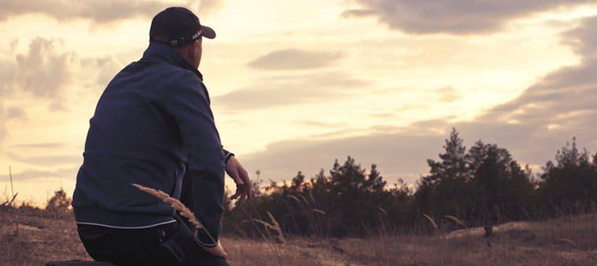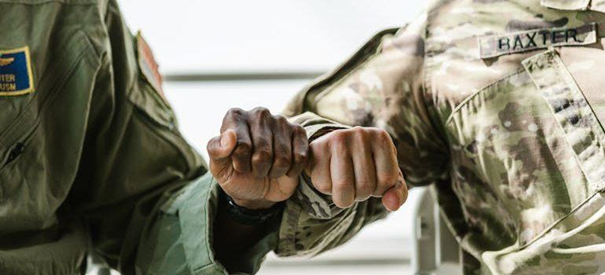
Many veterans in rural areas face deep isolation during recovery. Long distances, limited services, and inadequate support make it harder to recover. However, the good news is that there are strong support options for rural veterans in recovery. Family, local groups, and online help can break loneliness and build hope. Here, we’ll share clear ways to connect and get help, even from far away. No one should face recovery alone. With the right tools and people, rural veterans can find real support.
Why Rural Veterans Feel Isolated
Many veterans living far from cities often feel alone during recovery. Rural areas can lack nearby clinics, support groups, and trusted peers. Long drives and poor public transport make getting help hard. Internet service can be weak, too, blocking online talks or virtual therapy. Many veterans also feel cut off from others who understand their daily struggles.
All of this can deepen feelings of loneliness and stress. Without support nearby, isolation can grow. Without regular mental health check-ins for veterans, it can be difficult to spot early signs of stress and depression. Knowing why this happens is the first step to finding better ways to connect and stay strong in recovery.

Many veterans are unaware of support options for rural veterans in recovery
Family and Friends: First Line of Support
Family and friends can be the strongest safety net for rural veterans. Staying close to loved ones helps break feelings of isolation. Families can check in daily, share meals, or plan simple visits. Open talks build trust and help veterans share what they need.
One big step is to know what your triggers are so you can prevent relapse before it starts. Once you know your triggers, your family can help watch for warning signs. A quick phone call or short visit can make a huge difference.
Support from people you trust can help veterans stick with treatment. Small actions from family and friends create big change, keeping isolation away and recovery on track.
Local Community Groups Matter
Many small towns have churches, hobby clubs, or service groups that welcome veterans. Joining these groups builds new friendships and daily connections. Local leaders often know where veterans can get extra help. Ask about special events, meetups, or activities for veterans. Many community centers also host meetings or classes. These can be great ways to share stories and feel supported.
Local support brings people closer and builds trust. Strong community ties help veterans stay focused on recovery goals. Many towns now work to offer better support options for rural veterans in recovery through local programs. Getting involved in a group can be the first step in breaking isolation and feeling part of something again.

Local groups, peer mentors, and buddy systems can provide necessary support
Online Support Can Bridge Gaps
When local help is far away, online support can fill the gap for rural veterans. Many veterans use video calls, chats, or online groups to share struggles and wins. Virtual meetings help people feel seen and heard, even if they live miles apart. Trusted online forums can offer advice, tips, and friendly ears any time of day. One topic often discussed is the impact of PTSD on substance abuse since many veterans face both challenges at once.
Online tools can guide veterans through dark moments and connect them with real help quickly. Joining safe, secure online spaces keeps veterans linked to support. Even a short chat can help someone feel less alone and more ready to keep going.
VA and Nonprofit Services
The VA offers many services to help rural veterans in recovery. Mobile clinics travel to remote areas for check-ups and counseling. Telehealth lets veterans talk to doctors or counselors from home. This saves long trips and time away from family. Many nonprofits also step in to help. They may offer rides to appointments, peer groups, or funding for extra care.
Some groups connect veterans with local mentors or job support. It’s wise to check what services are close by and what you qualify for. VA staff or local veteran groups can guide you. These services help rural veterans get steady care and feel less alone during recovery.
Buddy Systems and Peer Mentors
A buddy system can help veterans feel less alone each day. Having someone to check in with builds trust and routine. Likewise, peer mentors can share advice and offer support because they have been through recovery, too. They listen without judgment and offer real tips that work. Buddies and mentors can remind you to stay on track when recovery feels hard. They also help you spot triggers early and find ways to cope.
Many veteran groups offer programs to match you with a peer mentor. You can ask your local VA or nonprofit for help joining one. A strong buddy system makes it easier to stay strong and avoid slipping back into old habits.
Finding Support Through Hobbies
Hobbies bring people together and help veterans feel connected. Shared activities break loneliness and add purpose to daily life. Many rural veterans enjoy outdoor clubs, fishing trips, or gardening circles. Joining a hobby group builds friendships in a natural way. Spending time outdoors also helps clear the mind and reduce stress.
Many veterans find peace and healing through outdoor therapy for veterans, which mixes hobbies with nature. Local libraries or town centers often share flyers about hobby clubs. Trying a new hobby can open doors to meeting people who care and understand. Simple activities can make each day feel less empty and bring fresh hope to recovery.

Hobbies can provide purpose and help you meet friends
Tips to Ask for Help Without Fear
Many rural veterans feel asking for help shows weakness, but it shows true strength. Learning to open up can change everything. Knowing there are support options for rural veterans in recovery makes it easier to speak up. So, take small steps and remind yourself you are not alone. Trusted friends, family, or local groups want to help you succeed.
Use these quick tips to ask for help without fear:
- Start with someone you trust.
- Write down what you need before talking.
- Use short, honest words.
- Take breaks if you feel nervous.
- Remind yourself that asking is brave.
Take Action and Stay Connected
Veterans in rural areas do not have to face recovery alone. Many support options for rural veterans in recovery can break isolation and build hope. Reach out today. Join a group, call a friend, or find a mentor. Small steps bring big change. Connection makes a recovery stronger. The National Association of American Veterans, Inc. (NAAV) was founded in 2005 to help severely injured service members, veterans, and their families. NAAV leads in supporting the mental health needs of veterans nationwide. To help, visit www.naavets.org and click on Donate Today! Every bit helps.
Author bio
Anna Wilkins is a mental health writer and advocate focused on veterans, PTSD, and addiction recovery. She lives in Helena, Montana, and supports better resources for veteran communities everywhere.
Photos used:
https://www.pexels.com/photo/close-up-photo-of-soldiers-doing-a-fist-bump-7468184/
https://www.pexels.com/photo/person-sitting-on-tree-log-362875/
https://www.pexels.com/photo/ethnic-male-sorrowing-near-wall-on-street-7925904/
https://www.pexels.com/photo/man-in-brown-sweater-sitting-on-brown-leather-couch-7330165/
